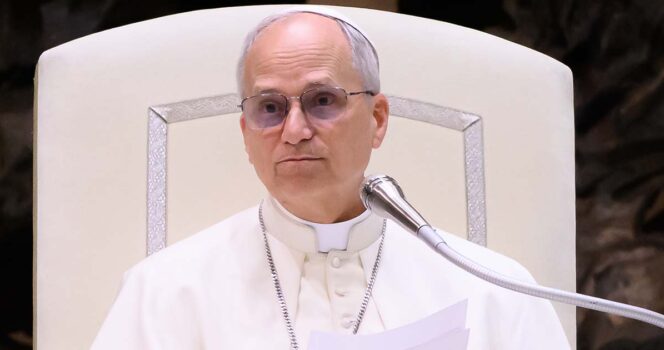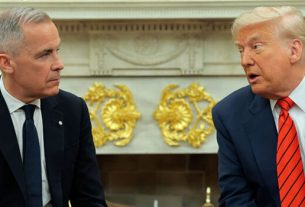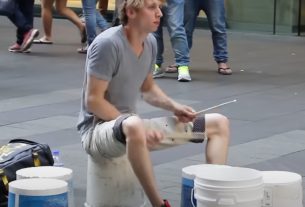In May 2025, weeks into the papacy of Pope Leo XIV—formerly Cardinal Robert Prevost—past decisions made during his time as a regional leader within the Augustinian Order have resurfaced. A former Chicago-area cleric, James M. Ray, has raised concerns about a housing arrangement dating back to the early 2000s, prompting renewed calls for transparency in clergy oversight.
This development has been covered by multiple reputable news organizations including the Chicago Sun-Times, which published a detailed account of Ray’s time living at a Hyde Park friary in Chicago while under church-imposed restrictions.
Background: Who Is Pope Leo XIV?
Pope Leo XIV, born Robert Francis Prevost, was elected as the 267th pope in April 2025. Prior to his election, he held numerous leadership roles within the Catholic Church, including:
- Prior General of the Augustinian Order (2001–2013),
- Bishop of Chiclayo, Peru,
- Prefect of the Dicastery for Bishops (appointed 2023 by Pope Francis), a Vatican role responsible for evaluating and appointing bishops.
He has been known for advocating pastoral care, institutional transparency, and a deeper response to the global clergy abuse crisis. In past interviews with Vatican News, he has emphasized the Church’s obligation to support survivors and reform internal practices.

The Allegation: Housing of Restricted Clergy
The new claims stem from a housing arrangement from 2000 to 2002 when Prevost, as head of the Midwest province of the Augustinians, approved accommodations for James M. Ray at St. John Stone Friary in Chicago’s Hyde Park neighborhood.
Ray, who had been the subject of multiple abuse allegations at the time, says the residence was located less than a block from St. Thomas the Apostle Elementary School, and near a child care center. According to the Chicago Sun-Times, the school was not notified about his presence.
At the time, the Archdiocese of Chicago had primary authority over Ray, as he was an incardinated priest of the diocese, not the Augustinian order. The Archdiocese has previously acknowledged the systemic shortcomings in handling such cases—particularly before the adoption of formal “zero-tolerance” policies following the 2002 Dallas Charter for the Protection of Children and Young People.
A spokesperson for the Augustinians said that Ray was “accepted as a guest” at the friary and that day-to-day oversight was the responsibility of the local friary supervisor, the now-deceased Rev. James Thompson. No statement from the Vatican has been issued regarding the renewed discussion of this historical case.

Legal and Institutional Context
At the time of Ray’s residence at the friary, no federal or Illinois state law explicitly required religious institutions to notify communities when clergy accused—but not convicted—of misconduct were housed near schools. However, best practices regarding child safety have evolved significantly over the past two decades.
Since the 2002 Boston Globe investigation into systemic abuse within the Catholic Church, dioceses across the U.S. have adopted stricter protocols on clergy housing, monitoring, and community disclosure. The United States Conference of Catholic Bishops (USCCB) continues to update its Charter for the Protection of Children and Young People, which now includes:
- Mandatory reporting to civil authorities,
- Independent review boards,
- Background checks for all clergy and Church workers,
- Publicly accessible lists of credibly accused individuals.
According to the USCCB’s 2024 Annual Audit, more than 2 million clergy, employees, and volunteers have completed safe environment training, and most dioceses have implemented robust compliance structures.
Ray’s Current Status and Public Comments
James M. Ray was permanently removed from public ministry in 2002 and formally laicized (defrocked) by the Vatican in 2012, according to Church records. In interviews with the Sun-Times, he shared that he continues to live a private life and remains connected to his personal faith.
Ray acknowledged the gravity of the accusations made against him, but has offered varying personal accounts of past events. While some of his public comments have been interpreted as minimizing by some observers, his statements have also expressed personal sorrow and reflection.

Church Response and Institutional Reforms
In response to renewed public scrutiny, Church leaders have reiterated the importance of transparency and accountability. While no allegations have ever been made against Pope Leo XIV personally, his past administrative decisions are now receiving closer examination given his new role as pontiff.
Catholic scholars and reform advocates note that historical cases like these are part of a larger effort to ensure that all Church leaders are held to consistent and transparent standards. According to Professor Kathleen McChesney, former executive director of the USCCB’s Office of Child and Youth Protection.
Moving Forward: Rebuilding Trust
Pope Leo XIV has repeatedly emphasized the importance of pastoral accompaniment and listening to survivors of abuse. Since becoming pope, he has signaled a commitment to continuing the reforms initiated by his predecessors, including Pope Benedict XVI and Pope Francis, both of whom enacted measures to address abuse and clerical accountability.
Conclusion
The resurfacing of questions about clergy housing decisions during Robert Prevost’s tenure in Chicago highlights the ongoing challenges the Catholic Church faces in reconciling past administrative actions with present-day commitments to safeguarding and justice.
While no new investigations have been announced, this case underscores the importance of continued vigilance, reform, and open dialogue. As Pope Leo XIV begins his papacy, his past leadership decisions—and how he responds to them—will be watched closely by both the faithful and the broader public.
Verified Sources
- Chicago Sun-Times
- United States Conference of Catholic Bishops (USCCB)
- Vatican News
- National Catholic Reporter
- Boston Globe Spotlight Investigation
- Georgetown University’s Initiative on Catholic Social Thought and Public Life




